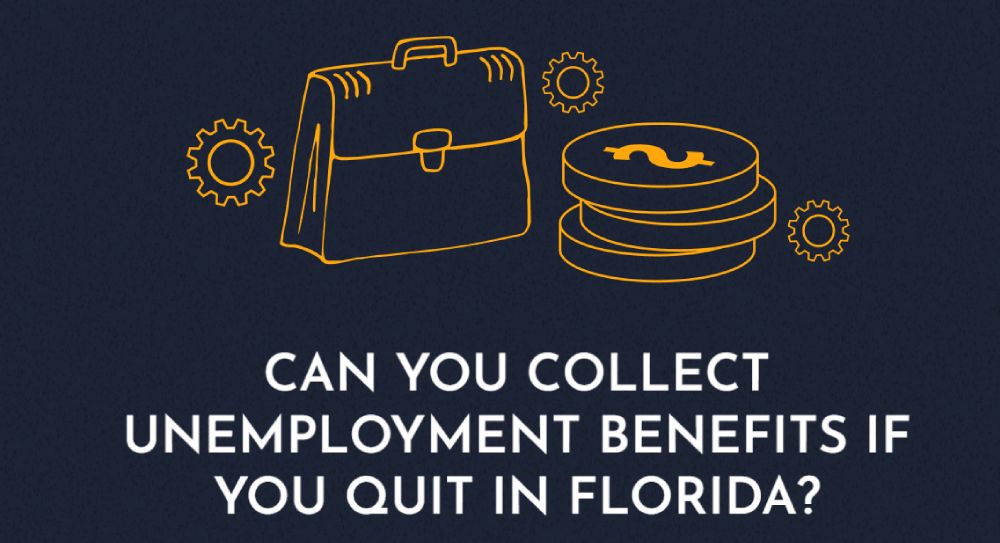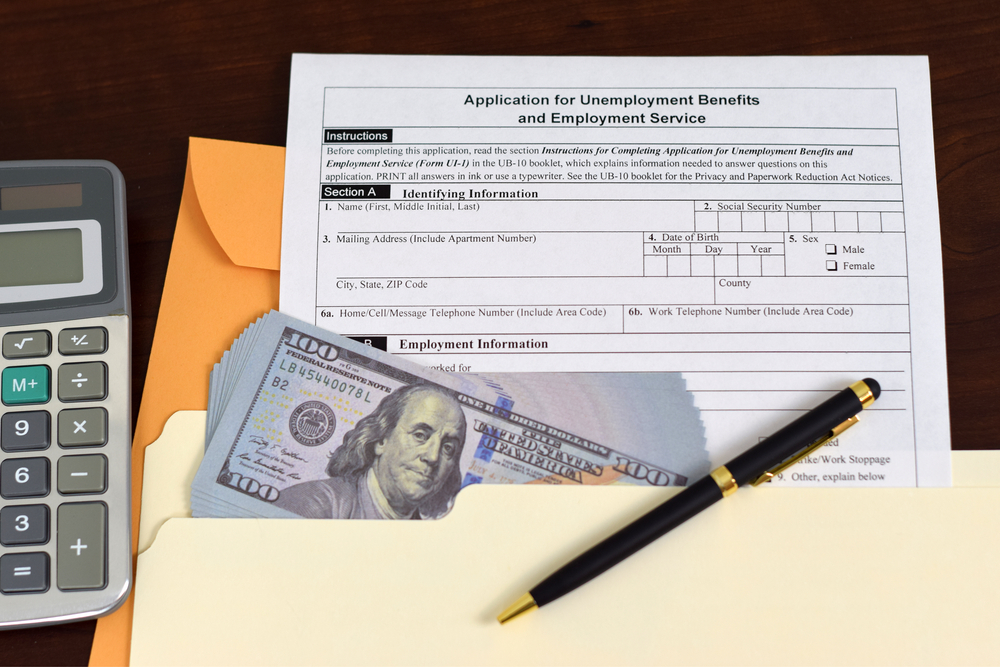
Quitting your job doesn’t always mean giving up the right to unemployment benefits. In Florida, there’s a fine line between voluntary resignation and a situation that forces your hand. You might’ve left for a valid reason, but that doesn’t mean the state will see it that way. That’s where understanding the nuances of the law comes into play.
When you’re trying to figure out whether your departure qualifies for financial support, it’s not just about paperwork. It’s about the context. A Florida employment lawyer will know how to present that context in a way the state takes seriously. Without that help, your side of the story could easily get lost in translation.
Florida’s Approach to Unemployment After Quitting

You’ve probably heard the general rule: quit your job, lose your benefits. But like many things in employment law, the full picture isn’t that black and white. Florida law doesn’t automatically disqualify you from unemployment benefits (which the state refers to as “reemployment assistance”) just because you chose to leave. It focuses on whether you had what is called “good cause.”
Good cause isn’t a loose idea. It must be rooted in legitimate, work-related issues that made it unreasonable for you to stay. That might include health risks, unpaid wages, or repeated harassment. If the circumstances made continued employment untenable, your claim could still be valid.
A Florida employment attorney will work to build the timeline in a way that shows your departure wasn’t impulsive or petty. Instead, your decision may have been the only reasonable option given the conditions at work. Knowing what are my rights in these situations helps frame your case effectively. That distinction can mean the difference between approval and denial.
Voluntary Quit vs. Constructive Discharge
When you walk out the door, it’s considered a voluntary quit. But not every exit falls neatly into that category. In some cases, the working environment becomes so hostile or dysfunctional that it pushes you to resign. That’s called constructive discharge, and Florida recognizes it as a potential basis for unemployment benefits.
You’ll need to prove that a reasonable person in your position would have done the same thing. A Florida employment lawyer will listen to your account and help you gather supporting records. That might include emails, HR complaints, medical documentation, or witness statements. If you made efforts to fix the problem before resigning, that step strengthens your case even more.
Health and Safety as Grounds for Leaving
If your job starts affecting your physical or mental health, you might think you’re stuck between working and staying safe. However, Florida law carves out an exception for situations where staying employed would be unreasonable for health-related reasons.
This doesn’t mean you can simply say, “I felt sick.” You’ll need documentation – medical records, doctors’ notes, or health-related communications with your employer. The unemployment office won’t approve benefits without concrete proof that the workplace harmed your well-being.
A Florida employment attorney will help you link your departure to a medical reason that the state accepts. That might include workplace exposure, ignored safety risks, or an untreated psychological toll. If your resignation followed clear communication about your health concerns, you’ll stand on stronger ground.
When Employer Misconduct Justifies Quitting
Some people leave their jobs because they’re tired of poor leadership, but that alone won’t qualify. You’ll need to show that your employer broke the rules or engaged in serious misconduct. That might include illegal behavior, unpaid overtime, harassment, or retaliation.
You can’t skip the step of reporting the issue internally. If you didn’t bring concerns to HR or your supervisor, your claim might appear premature. Florida expects employees to attempt to resolve issues before resigning, even in intense work environments. If you’re unsure how to deal with a hostile workplace before quitting, a Florida employment lawyer can guide you through the right steps to protect your claim.
Your Florida employment lawyer will focus on the misconduct and how it impacted your ability to work. If your boss created a discriminatory culture or retaliated against you for reporting problems, those facts need to be documented clearly. The stronger the connection between their behavior and your decision to leave, the more persuasive your claim becomes.
Wage Disputes and Unpaid Compensation
No one wants to keep showing up if the paycheck doesn’t arrive. If you left because you weren’t paid properly – or at all – your claim for unemployment benefits could still be valid. Florida acknowledges unpaid wages or altered compensation as potential justification for quitting.
But again, proof is key. Paystubs, timesheets, and communication with HR can all support your position. If your hours were cut drastically or your commission disappeared without explanation, those details matter.
A seasoned Florida employment attorney can take your wage-related evidence and help frame it for maximum impact. It’s not just about what you were owed. It’s about showing how the breach disrupted your livelihood and gave you little choice but to resign. If your employer failed to pay you properly, you may wonder, can I still sue? In many cases, the answer is yes – and pursuing both unpaid wages and unemployment benefits may be possible.
Personal Reasons vs. Work-Connected Justifications
You might have had a compelling personal reason to quit, like moving to care for a relative, going back to school, or relocating with a spouse. But under Florida law, personal reasons don’t usually qualify you for unemployment. Even if the choice was noble or necessary, the benefits system only recognizes job-connected causes.
There’s an exception in rare cases. If your spouse’s military transfer forced a move, you may still qualify. Otherwise, resignations based on family or lifestyle choices typically won’t lead to benefits.
A Florida employment lawyer will review whether your personal situation overlaps with work-related issues. Sometimes, what appears to be a personal reason is actually part of a broader pattern of job-related hardship. If there’s any opening to present your case from that angle, your attorney will find it.
Filing Your Claim After Quitting
Even if you think your situation qualifies, filing the claim is its own challenge. Florida’s CONNECT system requires careful answers, and one misstep can lead to automatic disqualification. The system assumes you quit voluntarily unless you give them a strong reason to reconsider.
A Florida employment attorney will guide you through explaining your departure. It’s not about rewriting history – it’s about telling the story in a way that matches the legal standards the state uses to evaluate claims.
Timing matters, too. Waiting too long to file can raise red flags. Similarly, providing vague or incomplete information can be problematic. That’s why legal guidance early in the process makes a difference.
What the Appeals Process Looks Like
If your claim is denied, that’s not the end of the road. Florida allows you to appeal, and many valid claims are initially rejected due to unclear explanations or a lack of supporting documents.
Appealing requires a formal hearing. It’s not just a form you submit online. You’ll appear before an official who reviews your testimony and evidence. The hearing may be over the phone or in person, and your employer might attend as well.
Your Florida employment lawyer will prepare you for that hearing by developing a strategy, gathering key exhibits, and helping you testify effectively. You don’t want to stumble through a hearing unprepared while the employer presents a polished defense. You’ll need someone in your corner who can anticipate what’s coming.
Quitting in Response to Harassment or Discrimination
If you left your job because of race, gender, age, disability, or sexual orientation discrimination, your case isn’t just about unemployment. It could involve broader legal implications, including potential civil rights violations. But from a benefits standpoint, the state still wants evidence that you tried to report and resolve the issue before walking away.
You might’ve filed complaints, reached out to HR, or spoken to a supervisor. If nothing changes, your resignation can be seen as the only remaining option. You weren’t quitting on a whim – you were protecting yourself.
A Florida employment attorney will highlight your attempts to fix the issue before leaving. That strengthens the narrative and puts the employer’s inaction front and center.
What Happens If You Quit After Reporting Illegal Activity?

Some workers find themselves in the middle of something shady – unethical billing, illegal sales practices, or other regulatory violations. If you spoke up and then quit due to retaliation or lack of change, your case has a unique weight.
In these scenarios, your departure might also fall under Florida’s whistleblower protections. That opens up other potential remedies, but it also reinforces your unemployment claim. Quitting in the face of persistent misconduct isn’t the same as giving up.
A Florida employment lawyer will help tie your resignation to the broader context of wrongdoing. That gives your unemployment application more teeth and shows you didn’t abandon your job; you stood for integrity.
Forced Resignation and Subtle Pressure
Not all resignations feel like a choice. Some employers push workers out indirectly – by cutting hours, reassigning tasks, isolating them from projects, or hinting that quitting would be preferable to being fired. If your resignation came after this kind of pressure, your claim could qualify.
Florida evaluates whether your resignation was truly voluntary. If the employer manipulated circumstances to make you leave, that undermines their defense.
An experienced legal representative will unpack those subtle tactics. Emails, performance reviews, or shifts in your job description can paint a picture of strategic ousting. If the employer orchestrated your exit to avoid paying unemployment, that’s a detail the referee needs to hear. Knowing how to protect yourself early on, including documenting each change and seeking legal advice, can make all the difference in how your claim is viewed.
What Employers Often Say in Response
Employers don’t always tell the same story. They might claim you quit for personal reasons or walked out without notice. They might deny the misconduct entirely. If you left without a formal resignation letter, they could use that against you.
That’s why consistency matters. From the moment you apply, your story needs to be tight. Your explanation in the application, your statements in hearings, and your documentation must all align.
Your Florida employment attorney will make sure your version doesn’t drift. If you start strong but contradict yourself later, the state might side with your employer. Consistency and clarity win more than emotion or outrage.
Temporary or Seasonal Jobs and Resignation Rules
If you worked a seasonal position and left before the contract ended, your eligibility gets complicated. Florida doesn’t automatically deny benefits in those cases, but the facts must support that your resignation was still justified.
You’ll need to show that something changed – maybe the employer modified your schedule without notice, or the working conditions became unreasonable.
Your legal representative will look closely at your contract or agreement and determine whether you actually had the flexibility to leave. If the role wasn’t truly fixed-term or your departure followed mistreatment, that gives you room to argue.
When Mental Health Becomes the Breaking Point
Stress and anxiety can turn any workplace into a daily struggle. If you quit because of mental health deterioration caused by the job, your claim could still be valid – if you support it with documentation.
Florida considers medical opinions, counseling notes, and other health records. The challenge lies in connecting your condition to the job itself. If there’s no causal link, the state might treat your resignation as a personal decision.
A skilled attorney will help you tie the impact to your role, your manager, or the working environment. They’ll also help identify whether there were accommodations that should have been offered and if your employer ignored those options, that matters.
What You Can Expect During the Review
Once you apply, your case goes to the Florida Department of Commerce for initial review. They’ll send questionnaires to you and your employer. The state evaluates both responses before making a decision.
Timing varies, but it usually takes a few weeks. You’ll receive a determination letter with your approval or denial, as well as instructions on how to appeal if needed. Most people don’t win on their initial claim if they quit. That’s why building your application the right way from the beginning matters.
A Florida employment attorney will help you address any inconsistencies before they become problems. If the state sees holes in your claim, they’re more likely to deny it, even if you had a legitimate reason for leaving.
Speak With a Florida Employment Lawyer for More Information
You’ll need more than a heartfelt explanation if you seek benefits after quitting your job. You’ll need the right documentation, a consistent timeline, and a clear narrative that fits the law’s definition of “good cause.” A Florida employment lawyer can help shape your case, handle your hearing, and push back if your claim gets denied.
If you’re facing pushback after leaving a toxic or unjust job, a lawyer will help you fight for the benefits you’re entitled to. Get in touch with one as soon as possible for a free consultation.

